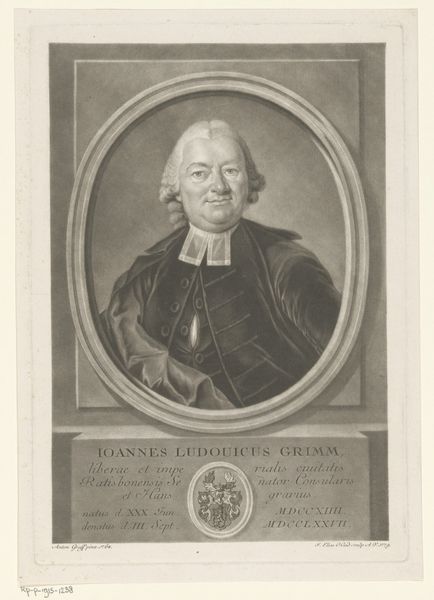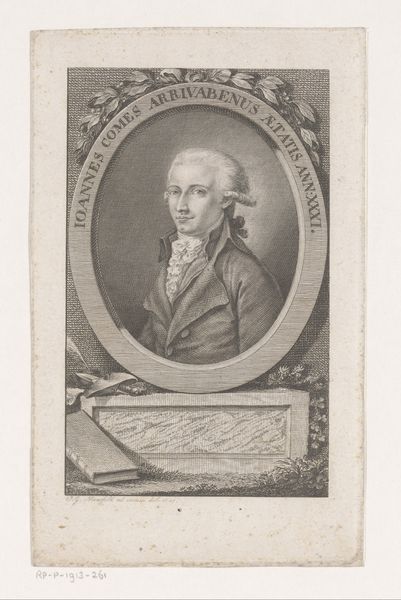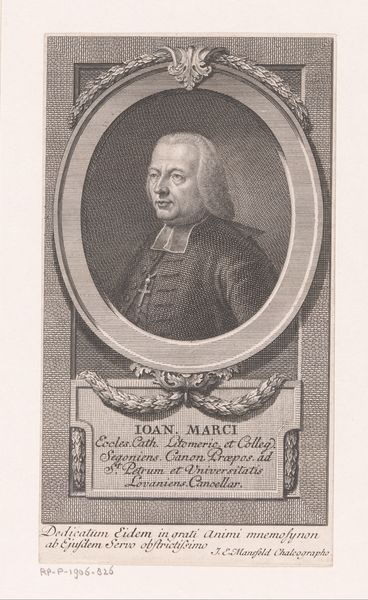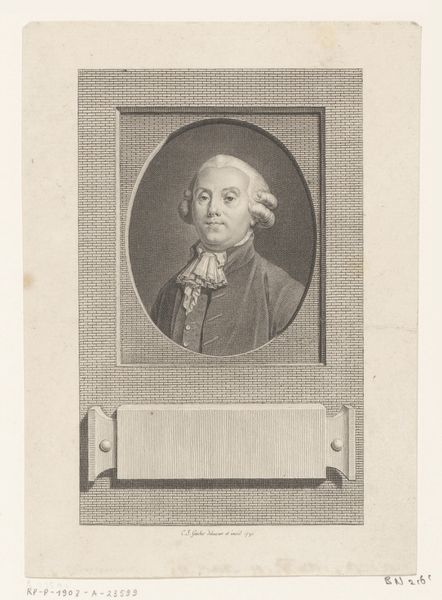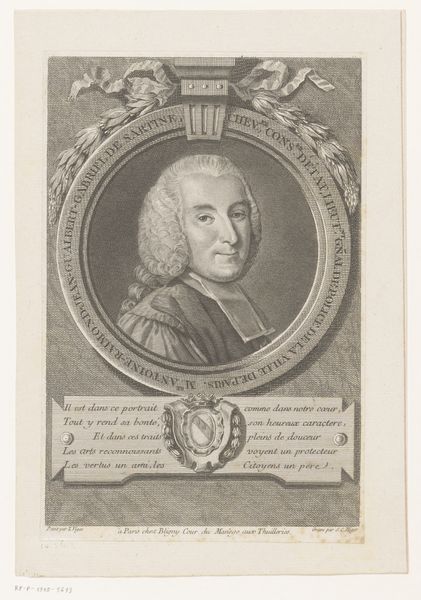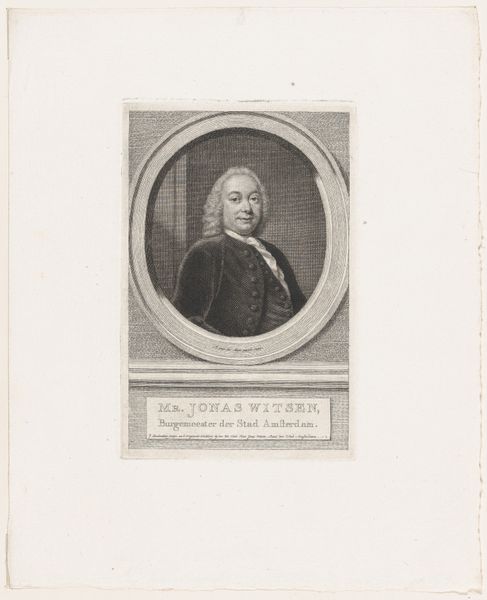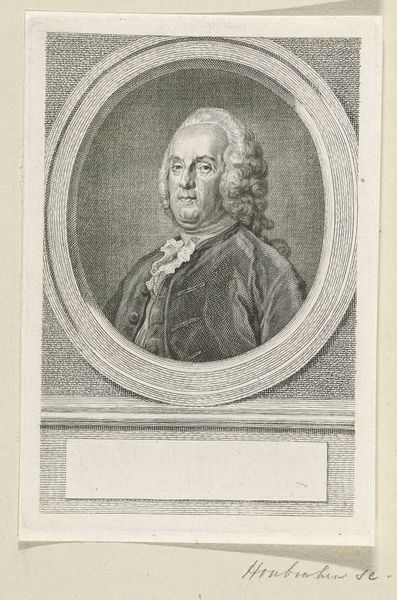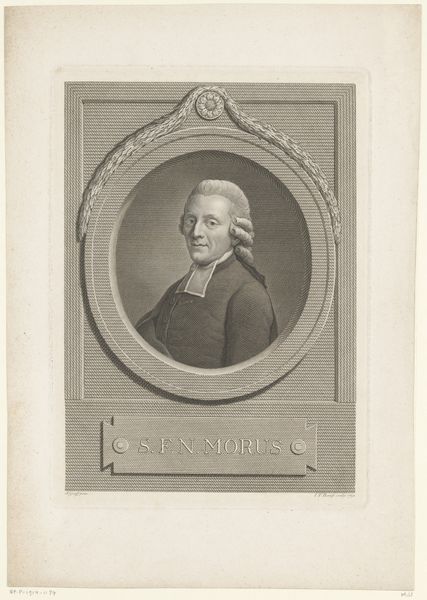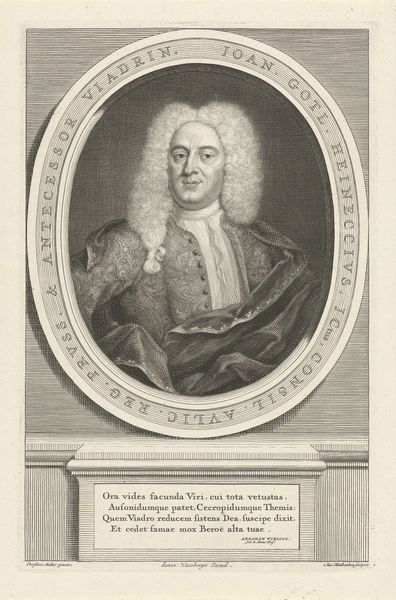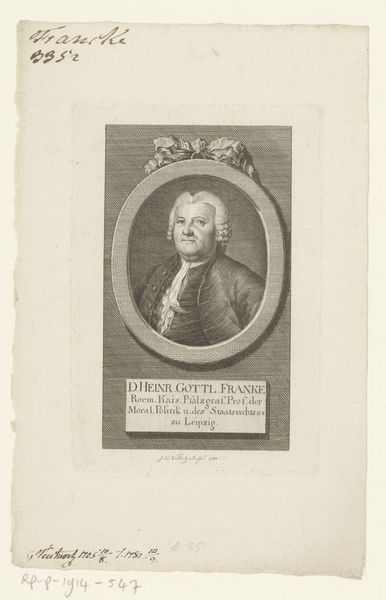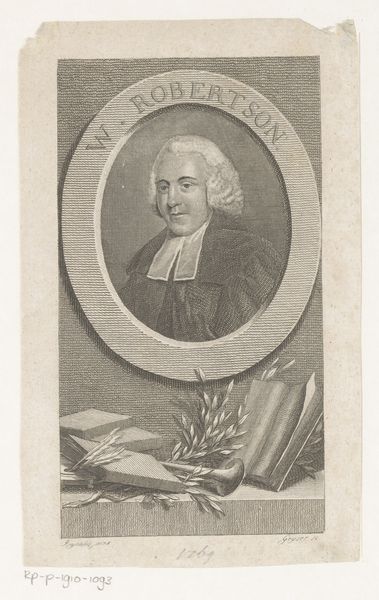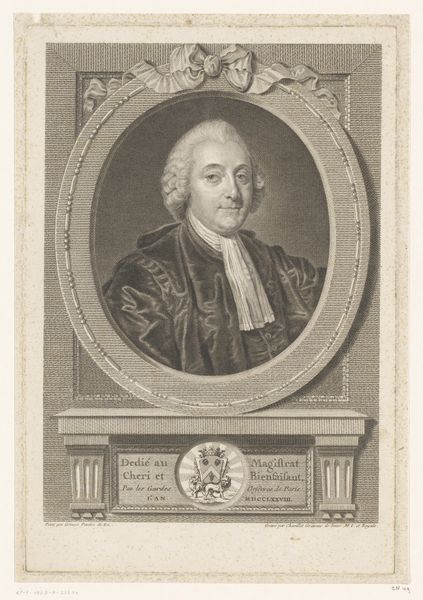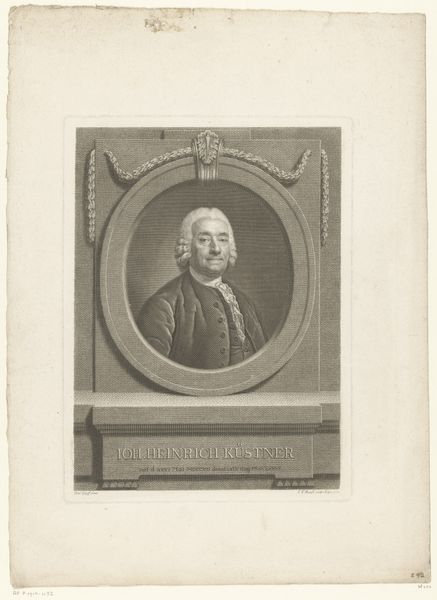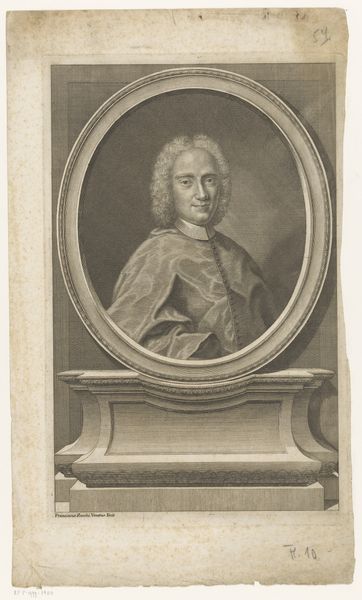
Dimensions: height 270 mm, width 191 mm
Copyright: Rijks Museum: Open Domain
This is a portrait of Gottfried Wilhelm Müller, likely made shortly after his birth in 1709, by Christian Gottlieb Geyser. It’s an engraving, which means the image was incised into a metal plate, probably copper, then inked and printed. Engraving was a highly skilled, laborious process. The image is built up from a dense network of lines, each one carefully cut into the metal. Look closely, and you’ll see how Geyser used varying densities of line to create a sense of light and shadow, and to define the contours of Müller’s face and clothing. The very act of creating the print carries social significance, as these were typically commissioned by or for the sitter, and often reproduced to wider audiences as well, and the making of a portrait became a symbol of status and accomplishment. Engravings like this were a vital form of visual communication in the 18th century, before the advent of photography, and should be appreciated for the skill and effort involved in their production. They remind us that even seemingly simple images can be the result of complex processes and cultural values.
Comments
No comments
Be the first to comment and join the conversation on the ultimate creative platform.
